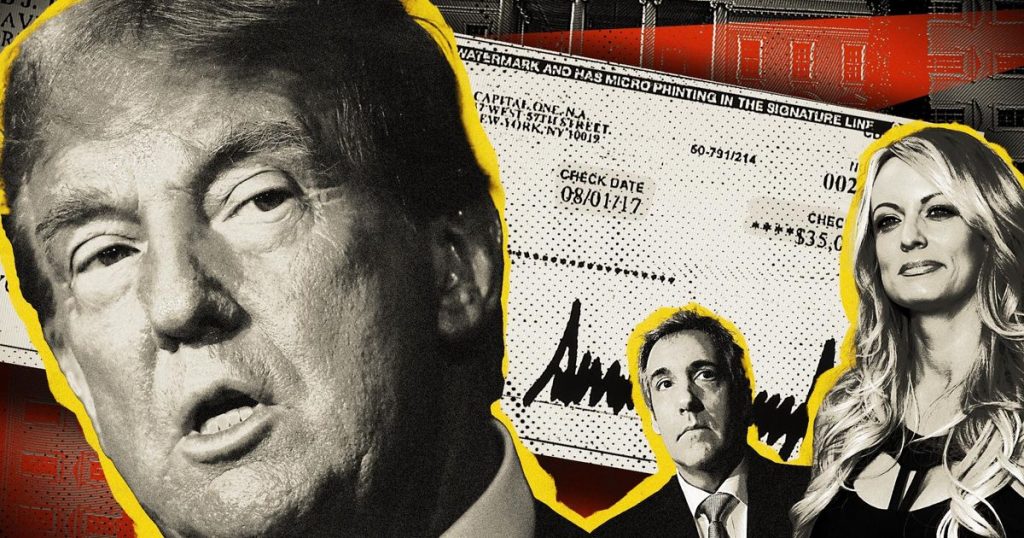Jury selection will commence for former President Donald Trump’s first of four pending criminal trials in New York. This marks a historic moment as it will be the first time a former president faces criminal charges, potentially leading to jail time. The trial involves an alleged hush money payment to cover up an affair and Trump will be required to be in the courtroom, facing testimony from individuals such as Michael Cohen and Stormy Daniels. Despite Trump’s attempts to delay proceedings, New York judges have rejected his motions, paving the way for his trial. Manhattan District Attorney Alvin Bragg has pursued charges against Trump for falsifying business records, referencing his focus on business integrity and record-keeping integrity.
The charges against Trump do not involve the affairs themselves but rather how the payments to Daniels and other individuals were handled. Prosecutors allege that Trump illegally covered up payments made on his behalf, leading to a felony charge. Despite the scandalous nature of the accusations and the public perceptions of Trump’s behavior, his supporters have continued to stand by him through various controversies. The trial stems from payments made to silence individuals like McDougal and a doorman, with the aim of preventing negative information from impacting Trump’s electoral prospects. Cohen’s involvement in facilitating these payments led to his guilty plea in 2018, with Bragg aiming to demonstrate that Trump’s actions were in furtherance of electoral gains, turning a misdemeanor offense into a low-level felony.
Prospective jurors will undergo questioning to assess their media consumption habits and views on Trump, highlighting the potential challenges in selecting an impartial panel. Critics have questioned the significance of the charges, describing them as mundane and potentially playing into Trump’s claims of political persecution by Democrats. Bragg has offered to delay the case to allow federal trials to proceed first but ultimately decided to move forward. Trump’s comparisons to infamous mob boss Alphonse Capone, who was convicted on tax evasion rather than more serious charges, highlight the potential outcomes of the trial. The impending trial will test the legal system’s ability to hold a former president accountable for alleged wrongdoing and potentially impact Trump’s political future.
The trial’s focus on business practices and integrity underscores the importance of transparent record-keeping in the business world. As a high-profile figure in the business and political realms, Trump’s handling of financial matters is under scrutiny. The outcome of the trial could have significant implications for future prosecutions of public figures and leaders accused of falsifying records for personal gain. Despite the potential circus atmosphere surrounding the trial, the legal process will play a crucial role in determining Trump’s fate and holding him accountable for his actions. The trial represents a pivotal moment in American history, highlighting the intersection of politics, business, and the legal system in addressing alleged criminal misconduct at the highest levels of government.


